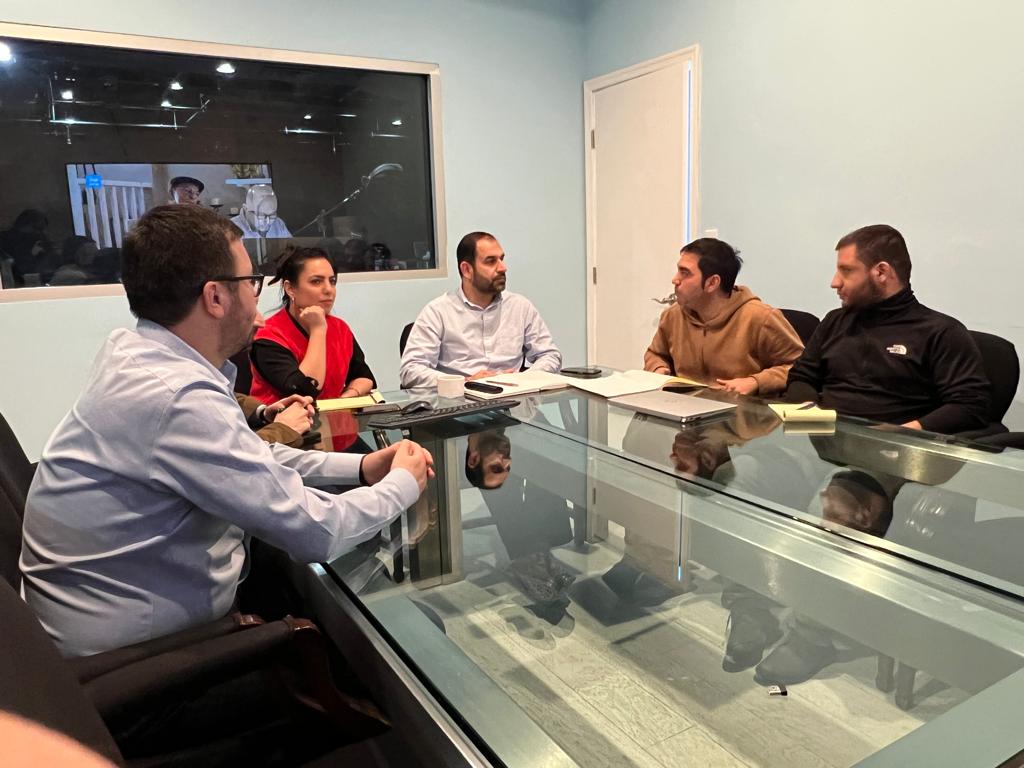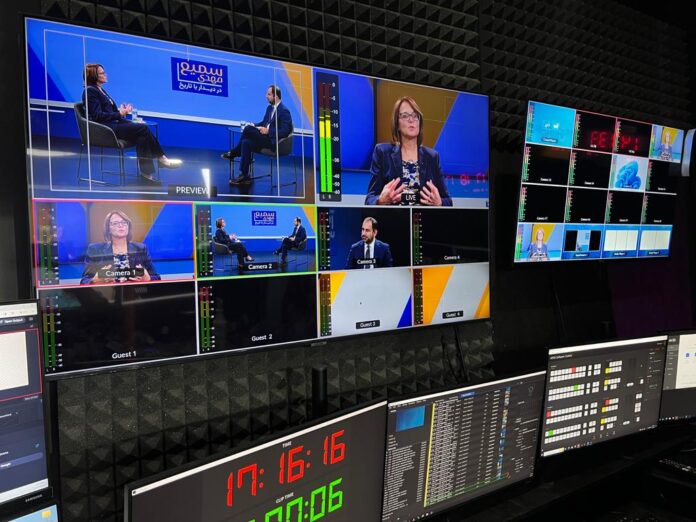By Mary Mwendwa
Press freedom has been compromised in Afghanistan for the last 20 years. Since the Taliban took over it has worsened. Sami Mahdi is the editor-in-chief of Amu Television owned by a group of journalists from Afghanistan. Women journalists have been largely affected as they have been banned from broadcasting on national TV and Radio channels while those working for private channels have to cover their faces with masks. Amu Television has stood the test of suppressed press freedom in Afghanistan and broadcasts through satellite in the USA. Mahdi talked to Talkafricas editor Mary Mwendwa about freedom in Afghanistan and how his TV station workforce has been affected since the Taliban took over. The Press Freedom Index ranking by Reporters without Borders of 2023 puts Afghanistan at 152 scoring 39.7 respectively.
Press freedom has always been a challenge in Afghanistan, more so since the Taliban took over in 2021, tell us more about the challenges journalists are currently facing.
Journalists in Afghanistan have been facing challenges and it has become more troublesome in the last two years since the Taliban took over, Taliban have criminalized independent journalism. There is no independent reporting in the country and any media that is not promoting their narrative is closed. According to international organizations such as Reporters Without Borders, over 200 cases of violence and detention have been recorded during the Taliban regime. When the Taliban took over the country in August 2022, the first thing they did was to ban women journalists from broadcasting on national channels. They then ordered those broadcasting on private channels to put on masks while on air to conceal their identities. So Taliban is set to make women journalists suffer more.
Also, since the Taliban took over almost 50 percent of media outlets in Afghanistan have shut down due to threats and economic challenges. Most journalists are now operating in Countries such as Pakistan, Turkey, and Central Asia among others.
Reports indicate that at least 80 percent of female journalists have lost their jobs. We had a very vibrant media in the region. But, now we have a very bad situation for the media now. There are no laws that promote the free press and the safety of journalists. Taliban have been ruling by restricting the media and shrinking their space.
Where is Amu TV hosted?
I am based in the United States of America as the editor-in-chief of Amu TV. We have a broadcasting studio in Northern Virginia, We have our journalists in other countries like Istanbul, Pakistan, and Canada, and a number of them in Afghanistan.

How has the situation been for Amu TV under the Taliban leadership?
We are not operating in Afghanistan because there is no press freedom there. We had to work from abroad to keep our editorial independence. The situation is not ideal because it’s very difficult to report on a country from like 8000 miles away. It is not easy. Access to information has been a challenge on our end. The Taliban only share formation on what they think favours them, We completely do not hear anything about the national budget and tax revenue for example. Media have very limited access to information. Our colleagues who are in Afghanistan now have faced very tough situations.
Taliban have arrested and detained a number of them for over six months now without charging them or any explanations.
How many staff do you have?
We have many staff operating in Afghanistan currently. I cannot reveal their number. They work by not revealing their identities and most of them are women.
About civilians now living in Afghanistan, how does it look like for them when it comes to access to information through media?
People were used to the free press in Afghanistan. They were used to objective reporting and demand for information was very high. For a majority of them, there is a sense of suffocation now. That is why Amu TV which was established in August 2022 is still broadcasting through satellite links for people to access objective reporting.
You attended the just concluded Acos Alliance Annual safety and coordination meeting in NewYork, you talked about losing your staff through killings by the Taliban, tell us More.
Afghanistan has lost over 100 media workers and journalists in the past 20 years. The majority of these have been killed by the Taliban. International organizations such as CPJ have documented this. I have lost colleagues, in 2016 employees of Tolo TV were killed and the Taliban took responsibility. Also, seven media workers of AMU TV were killed by the Taliban. One of my best friends and colleague who worked for Radio Free Europe/ Liberty was killed in 2020. I was under threat and I could not access my workstation for several months because they wanted to kill me.
How significant was the Acos Alliance meeting for you?
It was a very important meeting for me and those who attended in terms of learning experiences from other journalists and media managers facing similar threats across the world. This kind of forum is very important as it expands your viewpoint.















Protecting press freedoms around the world is so important. Thank you for shining a light on Amu TV and the challenges faced in Afghanistan
Comments are closed.